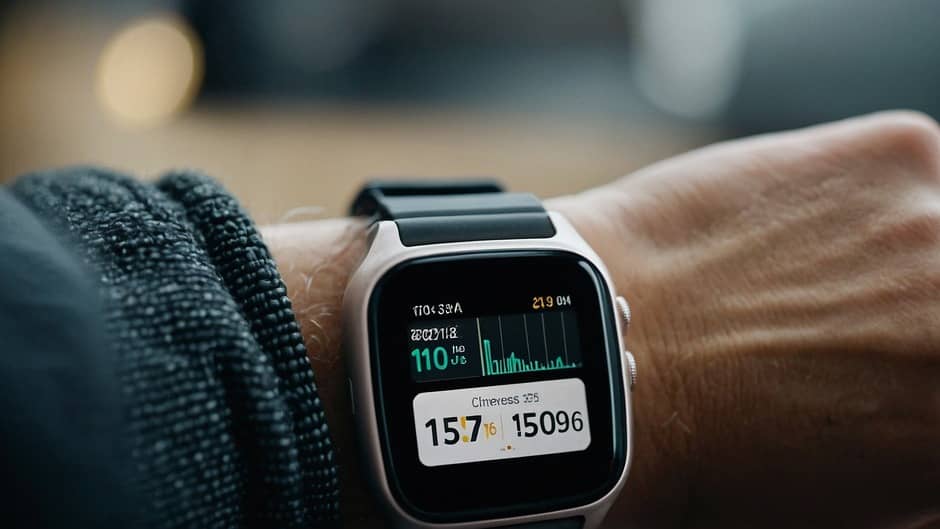Table of Contents
- Creating a Safe and Supportive Environment
- Medication Management
- Heart-Healthy Diet
- Gentle Exercise
- Keeping an Eye on Progress
- Healing the Mind Alongside the Body
- Building New Habits
- Wrapping Up
Let’s start by understanding what happens following a heart attack.
A heart attack is a sign that part of the heart did not get enough blood or oxygen for a prolonged amount of time.
This causes damage to the cardiac muscle. After the initial emergency care, recuperation and preventing a recurrent heart attack take precedence. So, how can you help someone who is experiencing this?
Also, let’s see does exercise prevent heart attacks?
Creating a Safe and Supportive Environment
It is quite common for someone to feel scared or anxious after having a heart attack. It’s your responsibility to remain composed and helpful. It is important to support them in discussing their emotions.
The knowledge that someone is paying attention can make all the difference in the world. Ensure that their house is a comfortable location for them to heal.
This may mean creating a comfortable space for them to sleep in and making sure they have easy access to anything they need, such as a phone, medicine, and water.
It may also be necessary to reduce physical strain, so think about things like keeping frequently used items within easy reach and maybe rearranging furniture to facilitate easier movement.
It’s also critical to keep in mind that healing can be a very emotional journey. They could feel happy one moment, then nervous or depressed the next. Show them that you understand and that it’s acceptable for them to feel the way they do.
With your comfort and compassion, they can handle these ups and downs.
Medication Management
Monitoring medication intake is an important responsibility.
After a heart attack, doctors usually prescribe a number of different drugs. These include blood thinners, beta-blockers, cholesterol-lowering drugs, and sometimes even anxiety or depression treatments.
It is your duty to assist them in following their medicine regimen in this case.
Reminders can be set or a pill organizer used. Strict adherence to recommended medicine can considerably reduce the risk of experiencing another heart attack, even if it may seem modest.
It’s also critical to understand the functions of each drug and the reasons behind their necessity.
For example, beta-blockers reduce heart workload, statins lower cholesterol, and blood thinners help prevent blood clots.
Adhering to the treatment plan can be easier if you are aware of this. Watch out for any adverse effects as well. Certain medications may result in fatigue, drowsiness, or even upset stomach.
Please do not hesitate to contact their physician if you observe something out of the ordinary.
Occasionally, the dosage needs to be adjusted, or a different medication can be necessary. Keeping control of this can make a big difference in their overall comfort and healing.
Also Read – How To Improve Teeth Health Naturally? – I Brush My Teeth Everyday And Still Get Tonsil Stones? (2024)
Heart-Healthy Diet
Now let’s discuss food. Eating the correct foods is crucial following a heart attack.
We are talking about a diet high in whole grains, veggies, lean meats, and organic items. Cut back on sugar, salt, and unhealthy fats.
Food that is boring or tasteless is not necessary for this!
There are tons of mouthwatering, heart-healthy, and satisfying dishes out there.
Plan nutritious meals for the coming week if you are in charge of the meals. Good options include grilled fish with steamed veggies for dinner, a colorful salad for lunch, and oatmeal for breakfast.
Snacking on almonds, sesame seeds, or other natural products is a fantastic way to maintain interest and nutrition.
Paying attention to section sizes is important.
Even healthful foods can be dangerous if ingested in big quantities.
Smaller, more frequent meals are encouraged to avoid cardiac strain and maintain consistent energy levels.
Additionally, it’s critical that they stay hydrated; dehydration can have a negative impact on the heart. Make sure they drink plenty of water throughout the day.
In case cooking seems too much for you, don’t hesitate to ask for assistance.
Families, friends, or even meal delivery services can intervene to make sure they’re getting the proper food without having to put in extra effort.
Additionally, ensure that any dietary preferences or limits they may have—such as being a vegetarian or needing to avoid particular foods due to other medical conditions—are taken into account.
Gentle Exercise
Exercise may be the last thing on a person’s mind following a heart attack, but it’s actually an essential component of recovery. Obviously, the goal is not running marathons but rather moderate, consistent exercise.
Consider going for a stroll, stretching lightly, or perhaps going for a bike ride. Start out slowly.
Maybe just a little stroll around the block at first, and as they gain strength, progressively extend the distance. Exercise not only strengthens the heart but also improves mood and reduces anxiety.
Along with strengthening your relationship and providing support, accompanying them on these walks may be a lot of fun.
It is crucial that they consult their physician or a cardiac rehabilitation professional prior to beginning any type of workout regimen.
They can help with creating a safe and practical activity schedule that takes the individual’s age, wellness level, and condition into account.
Enrolling in a heart rehabilitation program, which combines instruction, controlled exercise, and counseling, can occasionally be incredibly beneficial.
Make them focus on their physical well-being. If they feel dizzy, have trouble breathing, or have chest pain, they must stop and rest.
The goal should be steady, moderate improvement because pushing too hard can be hazardous.
With time, they might be able to increase the duration or intensity of their workouts, but they must be sure to do it at a speed that suits them.

Keeping an Eye on Progress
A heart attack requires frequent medical appointments.
These plans help monitor their progress, adjust prescriptions as needed, and identify possible problems almost immediately.
Make sure that priority is given to these appointments. It’s also critical to be aware of any warning indicators of a recurrent heart attack. Breathlessness, chest pain, or extreme exhaustion are possible symptoms of this.
If you have any of these adverse effects, don’t hesitate to seek professional help.
During these follow-up visits, doctors may also suggest additional testing, imaging studies, stress tests, or blood work to ensure the heart is mending properly.
Maintaining track of these appointments can help prevent issues and provide peace of mind for both you and your loved one.
It’s also a good idea to keep a journal of their symptoms, prescription usage, and any side effects. Examining this before a consultation might make it easier for doctors to spot any trends or problems that need to be addressed.
Healing the Mind Alongside the Body
While we’ve spent a lot of time discussing physical rehabilitation, mental recovery is equally crucial.
After having a heart attack, people often feel depressed, anxious, or even angry.
Encourage them to express their feelings and be available to listen without passing judgment. There are situations where speaking with a professional—such as a therapist—can be quite helpful.
If they join a support group where they can interact with people who have experienced similar things, they might also feel less alone.
Helping them find strategies for managing pressure is also important.
This could entail relaxing techniques like deep breathing, mild yoga, or meditation. Another excellent strategy to improve their mood and reduce their worry is to find them enjoyable hobbies or pastimes that also help them unwind.
It’s crucial to understand that healing affects the mind in addition to the body.
Providing near-home assistance and giving them the freedom to seek out further support when needed can have a significant impact on their overall well-being.
Also Read – Best Time To Wake Up Early Morning (2024)
Building New Habits
Finally, being well involves more than just getting back to “normal.”
\The key is to create new, healthier habits that can reduce the risk of having another heart attack. This could mean reducing alcohol intake, giving up smoking, managing stress, or finding ways to stay active.
When you support someone in their recovery, remember that little actions can result in significant transformations.
No matter how small the improvement seems, acknowledge it and tell them to keep going day by day.
Probably the biggest adjustment they can make is to give up smoking. Because it destroys blood arteries, increases blood pressure, and reduces blood oxygen levels, smoking is hazardous for the heart.
If they need help quitting, there are choices including as counseling, support groups, and medicine.
It is also essential to restrict alcohol. While some research indicates that moderate alcohol use may benefit the heart, excessive alcohol use can increase blood pressure and lead to other health problems.
It’s best to follow the guidelines, which generally recommend two drinks for males and one for women every day.
Learning to manage stress is a crucial component of healing. It’s critical to find strategies to de-stress and rest because prolonged stress can harm the heart. This could be spending time with loved ones, engaging in activities you enjoy, or even just being conscious.
Wrapping Up
It takes a lot of compassion, tolerance, and understanding to care for someone who has had a heart attack.
By creating a stable environment, helping them to follow their medication schedule, encouraging a heart-healthy diet, encouraging gentle exercise, and providing them with significant support, you’re giving them the best chance to recover and thrive.
Remember that you are not doing this alone. Add more family members, friends, or even capable guardians if needed.
Additionally, look after yourself; you’re an important part of this healing process.
With the correct support and care, life after a heart attack can be full of hope, health, and happiness.
Your loved one has the opportunity to make significant adjustments that will improve and enhance their quality of life.
You are essential to helping them on this journey as their caregiver.
Read us on Medium.




